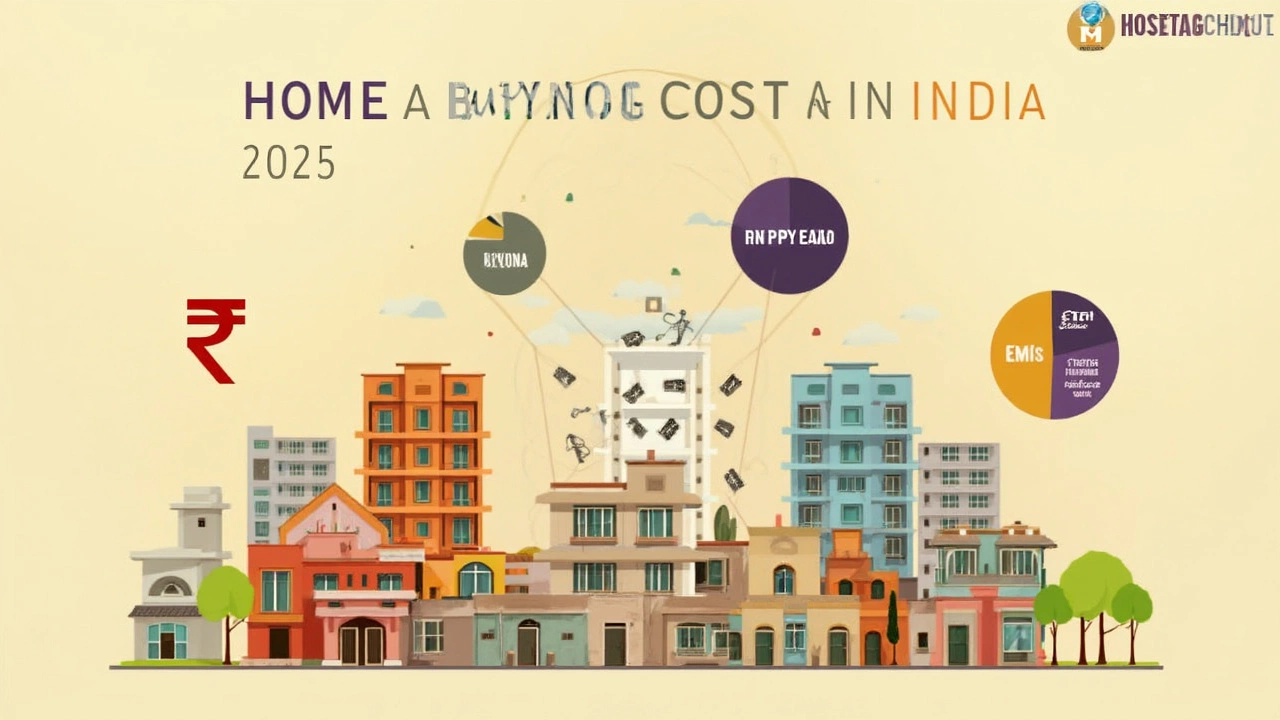Picture this: you’ve been grinding at your job, finally at the $50,000 a year mark, and everywhere you look, you see the same headlines—home prices are out of reach! TikTok’s flooded with people giving up on the idea of ever owning a place. But is it really impossible, or is there room for hope if you know what you’re doing? Let’s cut past all the doom and gloom, stack up the numbers, and see if that $50K paycheck can turn into house keys.
Why $50,000 Is the New Entry-Level for Dream Chasing
The median household income in the U.S. hovered around $74,000 in 2024, but tons of folks earn less, and $50,000 is a major milestone for singles or young couples. Here’s the thing—home prices hit an average of $393,500 for existing homes in early 2025. Yeah, that looks impossible at first glance, especially with mortgage rates dancing between 6.5% and 7%. But the U.S. isn’t one giant housing market. Prices swing huge depending on where you’re looking. For example, the National Association of Realtors (NAR) data shows places like Pittsburgh or Cleveland with median home prices shaving off hundreds of thousands compared to San Francisco or Seattle.
Let’s talk monthly payments. Lenders usually want your monthly debt (including your future mortgage) to stay below 36% of your gross income. On a $50,000 salary, that’s $1,500 a month, tops. With current rates and a small down payment, you’re eyeing houses in the $180,000 to $220,000 range. What does that even buy these days? In some areas, you could snag a three-bedroom starter. In others, maybe a cozy condo, or even just a townhouse. Geography is really destiny here, but there are more tricks to stretch what that $50K gets you.
This is where hacks like first-time buyer programs and assistance grants step in, chopping down upfront cash requirements. FHA loans let you get in with just 3.5% down. Some states, like Ohio and Texas, have 0% down programs if you meet certain requirements. There’s also the USDA loan program for rural spots, with no money down at all. Living slightly outside a city can mean the difference between getting your offer accepted or being priced out before you reach the open house.
Breaking Down the Real Costs of Homeownership for $50K Earners
Anyone who has actually bought a house will tell you: it isn’t just about making that monthly mortgage payment. Let’s break down all the big and small bills that come with it. Besides your principal and interest, you’ll have property taxes, homeowners insurance, and maybe private mortgage insurance (PMI) if your down payment is small. In 2025, property taxes can be thousands per year—averaging 1.1% of home value nationwide, though Texas, Illinois, and New Jersey are much higher.
Here’s a sample budget for someone on $50K aiming for a $200,000 home in a Midwest city:
| Expense | Estimated Monthly Amount |
|---|---|
| Mortgage (principal + interest @ 6.75%) | $1,200 |
| Property Taxes | $200 |
| Insurance | $80 |
| PMI | $70 |
| Utilities + Maintenance | $250 |
| Total | $1,800 |
Whoa. That’s already a bit above the recommended ratio, isn’t it? Now, some people get creative—house hacking (renting out a room), buying with friends, or even moving in with family until they build up more cash. Others ditch car payments, use public transit, or pick up side gigs to build a financial buffer. If you’re juggling student loans or a car note, that 36% rule gets even tighter. Qualifying for a loan doesn’t always mean you’ll feel comfortable with the payment every single month, especially if you’re not ready for surprise repairs. Leaky roofs and old water heaters don’t care about your budget plans. That’s why experts suggest keeping 1% of your home’s value every year socked away for repairs.
Pro tip: Always ask the seller for a home warranty during negotiations. It’s a small cost for them, and it can save you hundreds, even thousands, if stuff breaks during your first year. Every dollar counts more when you’re on the lower end of the income scale.

The Wild Card: Location, Location, Location
Ever wondered why someone in Des Moines or Memphis talks about buying a home on a single income without breaking a sweat? Local factors change the entire equation. In 2025, a $200,000 home might be the norm in Indianapolis or St. Louis, but just a down payment in Boston or San Diego. This means that folks making $50K in low-cost markets have a fighting chance, especially if they’re okay with fixer-uppers or suburbs a bit farther from downtown.
Let’s say you’re flexible. Working remote? You don’t need a downtown studio at premium rates. Plenty of people have gone digital nomad-lite since the pandemic and picked city fringes or small towns where their dollar stretches further. Research on housing markets by ATTOM shows that the Midwest and South still offer a path into homeownership, even for single-income buyers. You’ve got to weigh local lifestyle costs, commute times, and resale values, sure, but it’s doable for the ambitious.
Some cities have first-time buyer grants or low-interest loans aimed at keeping teachers, nurses, and cops local. Don’t skip researching your city or county’s housing department—there are often overlooked programs that provide down payment help or tax breaks. Score one of these, and suddenly doors open that you might have thought were locked tight. Also, new home builders in less popular markets sometimes toss in closing cost credits or mortgage buy-downs (lowering your interest rate for the first couple of years) if sales slow down.
Strategies to Actually Make It Work on $50K
If your stomach dropped looking at those monthly numbers, you’re not alone. Let’s talk about some not-so-obvious strategies. First, reduce your total debt. The less you pay to student loans, credit cards, or car payments, the more house you can afford within the bank’s rules. Dialing back unnecessary expenses can free up cash, but here’s a trick—side hustles. Plenty of buyers Uber or freelance on weekends, boosting their preapproval amount just by showing extra income for 12-24 months.
Aim to increase your credit score if you have time. A 720+ gets you the best rates, and even a small rate drop can save thousands over your loan’s life. Double-check your credit report for mess-ups years before you buy, and pay down credit card balances to keep your utilization low. Mortgage underwriting isn’t magic—it’s just math and paperwork. Stack the numbers in your favor.
Shop around for lenders. Not all banks offer the same rates, costs, or flexibility. A mortgage broker can line up several options, and some credit unions offer low-income specials or rebates. Don’t just default to whoever your real estate agent recommends; comparison shopping pays.
Down payment assistance is a game-changer. In 2024 and 2025, dozens of states expanded their programs, and many don’t require you to be a first-time buyer—just not having owned property in the last three years is usually good enough. Teachers, health care workers, and veterans often get special deals. Don’t assume you won’t qualify without checking the latest rules in your zip code.
- Consider buying a duplex or property with an accessory dwelling unit (ADU). Rent out part to cover part of your mortgage.
- Look for homes sitting on the market more than 60 days—motivated sellers offer better deals.
- Get preapproved before you start shopping. It makes buyers competitive in hot markets and shows sellers you’re serious.
- Use financial calculators to help weigh your price range; don’t just rely on what the lender says you’re approved for.
- Remember to budget for closing costs, usually 2-5% of the price—but some can be rolled into the loan or negotiated with sellers.
If you’re not in a rush, take a year or two to save more, fix your credit, or wait for better market conditions. Timing the housing market is hard (nobody’s got a crystal ball), but getting your finances solid gives you power when the right opportunity shows up.

When Does It Actually Make Sense—And When Does It Not?
So, can you afford a house making $50,000 a year? If you’re looking in a high-cost area, that answer’s likely no unless you have serious help, a killer down payment, or some kind of creative living situation. But in much of the Midwest, the South, or smaller cities—even in this 2025 market—crunching the numbers, hunting for deals, and using all those government programs could make it possible.
Remember, stretching too far isn’t worth the risk of being “house poor.” Life should still have room for an emergency fund, weekend fun, and a cushion for unexpected repairs. Don’t let fear or those wild social media stories stop you from investigating your real options, but also don’t get so swept up in owning your place that you end up trapped by your mortgage. Run your own numbers, talk to local pros, shop around, and don’t overlook neighborhoods that might not have been on your radar. Sometimes, the overlooked zip code is where your best shot at homeownership starts.
The real answer? Afford a house on 50k in 2025 by targeting the right market, using every assistance program, and upgrading your financial playbook. It’s not for everyone, but it’s way more possible than those viral horror stories would have you believe. If you’re willing to strategize, make trade-offs, and think local—not just national—you could be holding keys sooner than you thought, even on a $50,000 salary.





